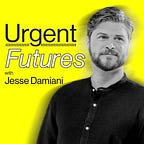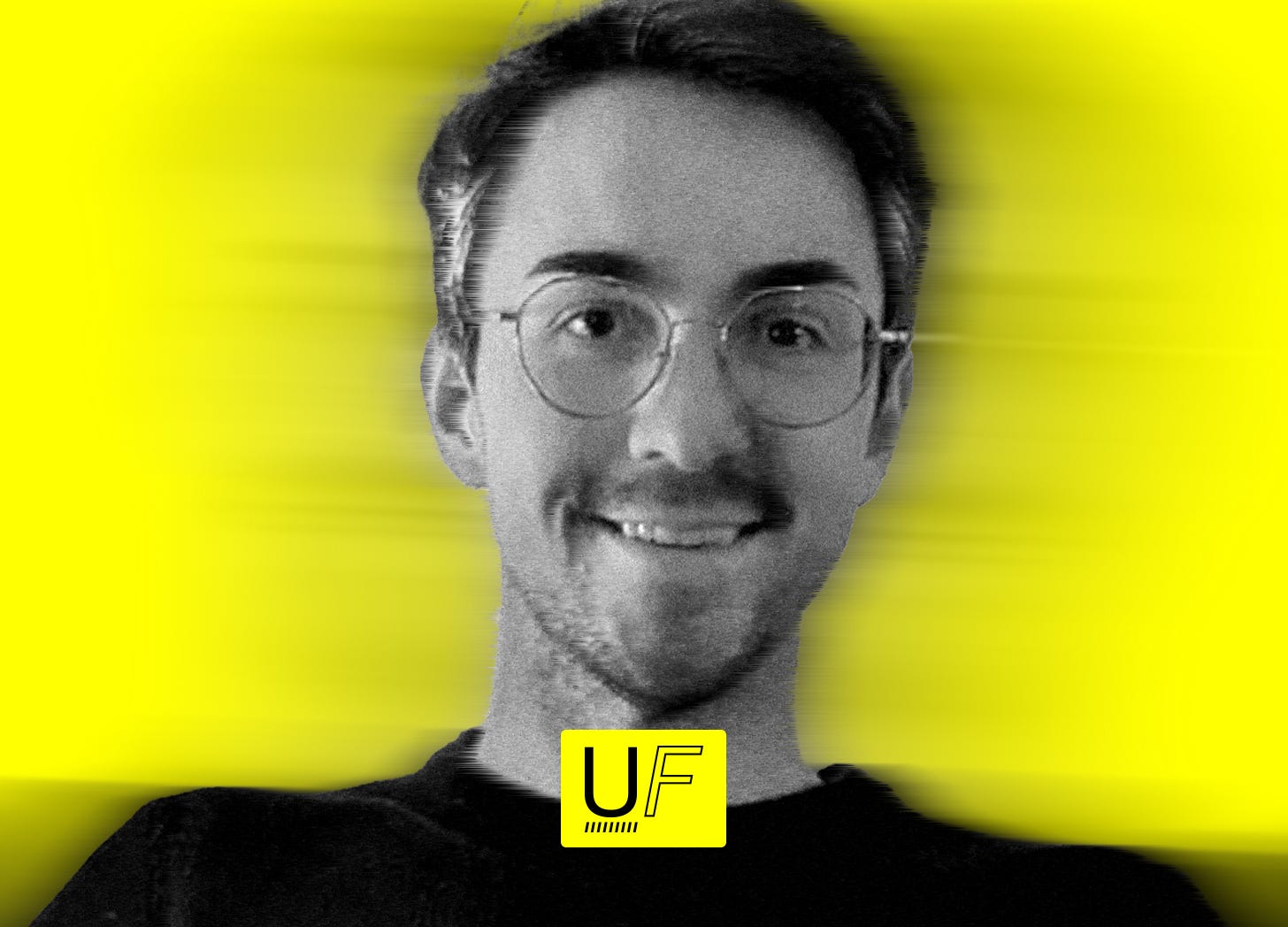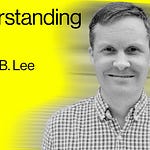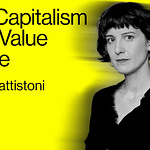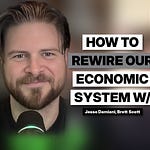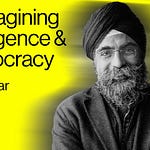Welcome to the Urgent Futures podcast, the show that finds {signals} in the noise. Each week, I sit down with leading thinkers whose research, concepts, and questions clarify the chaos, from culture to the cosmos.
👉 Never miss an episode! 👉 Subscribe to Urgent Futures now: Youtube | Apple Podcasts | Spotify.
My guest this week is David Guignion.
David Guignion is currently a Visiting Assistant Professor in Occidental College's Critical Theory and Social Justice Department. He completed his PhD at The University of Western Ontario where he studied conspiracy theories, media studies and continental philosophy. He is creator and host of Theory & Philosophy, a YouTube channel and podcast dedicated to making the history of ideas accessible to everyone. His published work covers myriad topics from conspiracy theories to French post-structuralism to Feminism and beyond. His most recent publication can be found in The University of Wisconsin Press' recently published Whispers in the Echo Chamber.
I spent the immediate years after grad school stretching the limits of my background in writing as far as they would go—working variously as a copywriter, media & tech journalist, adjunct professor, and startup founder. It was a fun ride, one I’m grateful for. But toward the end of the 2010s I found myself craving deeper engagement with life’s big questions: what is reality, consciousness, the meaning of life? I’m sure many of you have been there. The thing is, outside academic institutions, it’s much more difficult to get your bearings in theory and philosophy. Not only do you not have folks to work through the ideas with, you’re also never sure what the history of certain words are—is this a word freighted with meaning and debate or is it just a word being used in the normative sense?
Which is why David Guignion’s Theory and Philosophy channel has proven to be such an incredible resource in my life. He is a natural educator—not in the stuffy sense, but in really fostering invitations into subject matter. His passion for the ideas is palpable, as is his commitment to making them accessible for non-specialist audiences. So when I saw that he’d taken an visiting professorship in Los Angeles, I was thrilled. I’m happy that I’ve had the chance to bridge the parasocial chasm and become pals with him in “real” life.
Much of his output on Theory and Philosophy is focused on the type of texts and language you encounter while studying philosophy or critical theory in college, but through conversations with him I’ve come to learn about his own extensive research into conspiracy theories—what they are, how they form, how we talk about them, who is susceptible to their appeal, and much more.
This has always been a fascinating subject to me, but given that I live in American in the year 2025, this is a subject of great material importance, as unelected co-President Elon Musk pushes ever more dangerous conspiracy theories on the platform formerly known as Twitter. We now have the unfortunate experience of witnessing how conspiracy theories can radicalize people at all levels of society.
I’ve also witnessed how David has reacted to the genocide in Gaza, building from his origins in critical theory to real-world activism. This is especially illuminating coming from him because Anti-Semitism plays a powerful role in dangerous conspiracy theories—it’s arguably the most common trope of conspiracy theories, whether directly or indirectly. He is keenly aware of the dangers of Anti-Semitism, and simultaneously committed to advocating for Palestinian liberation. If you think those things can’t fit together, this episode will have a lot for you to contend with. And that’s just one piece; this conversation went so wide and deep that, in the video version, you’ll notice the light shifting on our faces. So, strap in, it’s a big one!
Some other episodes you might like:
If you’re loving the Urgent Futures podcast…
Please subscribe + leave a review on your preferred podcast platform! Or recommend it to a friend who might like it. All of it help the podcast grow.
Guests on Urgent Futures are experts across art, science, media, technology, philosophy, economics, mathematics, anthropology, and more. We live in complex times; these are the voices who will help you orient to emerging futures.
🎧 Audio versions of the podcast can be found Apple Podcasts, Spotify, or wherever you listen to podcasts. If you like what you hear, please subscribe on those channels!
Support Reality Studies
NOTE: Thank you for supporting my work by purchasing these products through the links provided. I will only ever share products I actually believe in.
Health & Wellness:
ZBiotics: Right now, get 10% off ZBiotics. Just head over to zbiotics.com and use code JESSEDAMIANI. If you have an evening with drinking and a morning you need to feel fresh, these are a great help.
Genetically engineered by a team of PhD microbiologists, ZBiotics is a probiotic drink that breaks down the byproduct of alcohol responsible for rough mornings after drinking (acetaldehyde).
MUD\WTR: Right now, get 30% off on starter packs using this link. There’s four different blends to choose from, but my current favorite is :rest. “This is our protest to hustle culture,” they say, and that resonates with me. Not only does it actually help me ramp down to sleep, but since I froth a little milk and make a latte with it, I get the warm cozy feeling of morning coffee at night. (For the evening tea drinkers out there: I’m not saying it’s better, just different!)
Mission Farms CBD: Right now, get a special extended Cyber Monday 50% discount sitewide using this link (code will be in top banner). Mission Farms CBD crafts full-spectrum CBD products for specific conditions like sleep, stress, and discomfort, using a combination of CBD and terpenes found in essential oils. I swear by this stuff: I take one of their Marionberry Lemon gummies to end each day.
There’s a lot of junk CBD on the market. All of Mission Farms’s CBD comes from a small farm in Bend, Oregon. They farm the hemp organically, tend every plant by hand, and test for purity four times: the soil, the hemp, the hemp-extract, and the final products. This CBD is designed for wellness and it shows. Go to this link and sign up for emails to get 25% off your first order.
Digital Hygiene:
NordVPN: For a limited time, get up to 72% off using this link. Some people tell me that “VPN” brings to mind ideas of hackers and the dark web, but honestly VPNs are just an extremely easy way to stay much safer online. I’ve used NordVPN for the past four years, and appreciate what they offer, including Threat Protection against malware, 24/7 customer support, fast speeds, and more. One account can protect up to 6 devices (phone and computer), and they don’t track or share what you do online. Another benefit: you can always access the content/apps you have at home, wherever in the world you are.
1Password: Listen, I know from personal experience that password managers don’t make for the most riveting dinner party conversation, but I need to express 3 things: 1) They make your life so much easier—it’s called “1Password” because once you get set up it’s the only password you’ll ever need to remember again. 2) They make your online life so much safer, ensuring that you use unique passwords for every account, stored with a high degree of encryption. 3) They are not nearly as complicated to set up as you think they are! Head over to 1Password using this link for a free trial, and individual plans for less than $3/mo after that.
CREDITS: This podcast is edited and produced by Adam Labrie and me, Jesse Damiani. Adam Labrie also directed, shot, and edited the video version of the podcast, which is available on YouTube. The podcast is presented by Reality Studies. If you appreciate the work I’m doing, please subscribe and share it with someone you think would enjoy it.
Find more episodes of Urgent Futures at: youtube.com/@UrgentFutures. Past conversations include Taylor Lorenz, Lisa Messeri, Legacy Russell, William E. Rees, Renée DiResta, and more. Here is another recent episode on AI and transformative justice with computational social scientist Avriel Epps:


